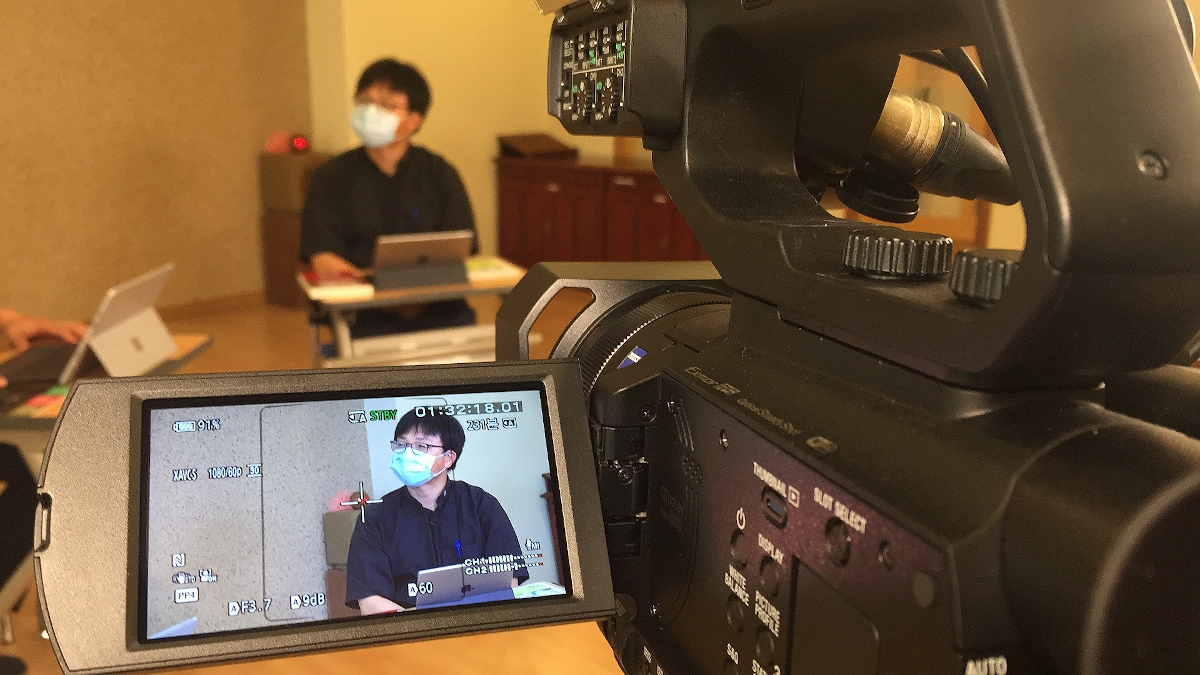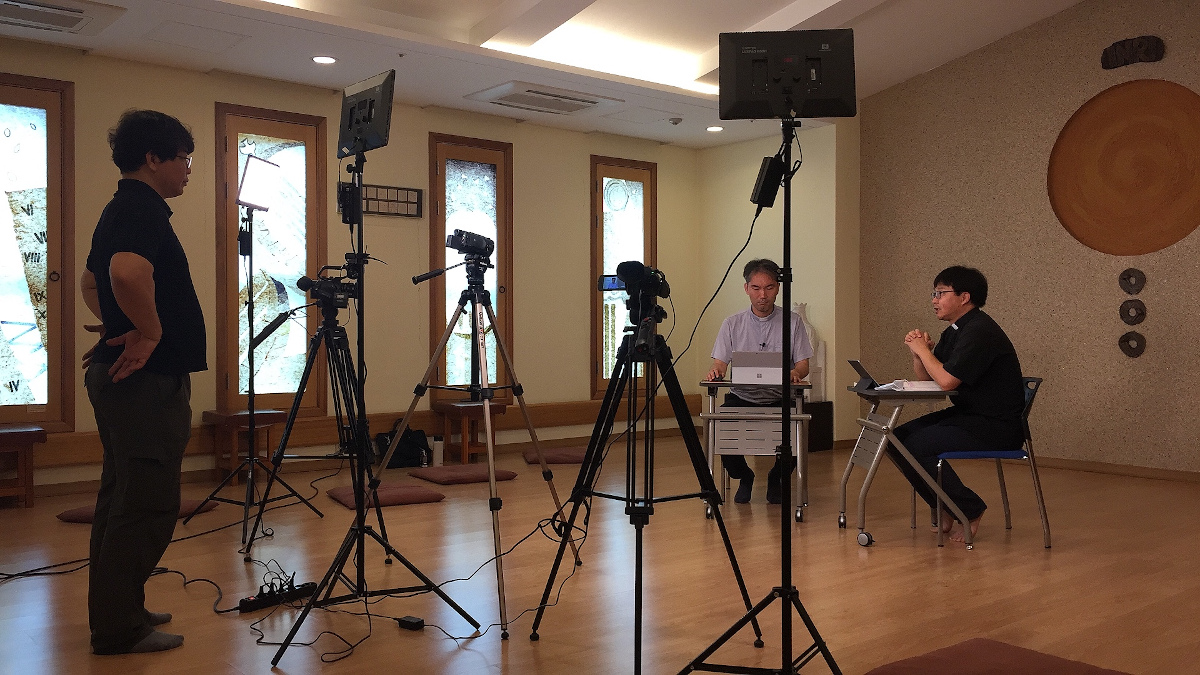Rev Hwang Chang-yon, a parish priest and famous YouTuber, had already insisted several years ago that the Church should be built in cyberspace. In a pandemic era, where many churches have been shuttered, his remark has taken on a renewed sense of relevance. According to him, the Catholic Church should create a space for each generation because each generation has its own issues and agenda. Only a cyber Church can respond to this kind of Cura Generationis. Each generation can easily access a cyber Church and a cyber Church can reach out to each generation promptly. In a way Covid-19 invites us to look beyond the horizon and to rethink the essence of religiosity.
The Korean Jesuit Province is in the process of reorganising its human resources and materials in order to build a “cyber apostolic centre”. Fr Lee Jae-Sang SJ, the newly appointed Director of Ignatius Media Communications (IMC), is part of a task force planning the province’s media platform for virtual apostolic work. Fr Kim Min SJ interviewed him about how the work is going about.
What kind of change is Covid-19 compelling us to make?
In the beginning, the Korean Jesuits were waiting for the end of the pandemic. We thought that Covid-19 would eventually subside and things would get back to “normal.” We were passive and unassertive. Apostolic audacity or creativity was hardly found. We slowly came to realise that this tunnel might not be like a tunnel that has a clear end. So we began thinking about how to live out our Jesuit identity in this uncertain tunnel.
What was the outcome of your deliberation on living out our Jesuit identity?
As a Jesuit working in the media, I firmly believe that this pandemic is opening up a chance for more commitment. It is surely an irony. Covid-19 provided a kind of favourable environment especially for the media apostolate. Before Covid-19, the media apostolate was considered low priority and urgency. Covid-19 compelled us to seek new approaches using innovative technology to try out our apostolic imagination. I feel the consensus being formed that new media technologies and social networks, such as YouTube, can be very powerful and effective instruments for evangelisation. We, at IMC, are one of the most benefited institutions in the Korean Province “owing to” the pandemic.
Can you tell me a little bit more about the newly formed consensus in the Korean Province?
I believe there will be a tremendous difference in the media apostolate pre-pandemic and post-pandemic. We are in the middle of a change. During the shutdown of the church, I found two types of Catholics. Catholics who are not yet deeply rooted in their faith were okay even though they could not go to church. Slowly they went into deep “religious hibernation”. On the other hand, devout parishioners felt thirsty and became frustrated because their ordinary religious practice was impossible. We had to do something for both parties. Though it was late, IMC began providing online Masses and the response was quite surprising. IMC is now trying to seek other creative initiatives to reach out to God’s people. With the support of the new provincial who also thinks that Jesuits should find a new way to proclaim the Gospel in this pandemic, IMC is now setting up a TV studio where real-time lectures can be streamed and YouTube content can be filmed.
It sounds like the decision to strengthen IMC’s capacity was the fruit of a province-wide reflection on the impact of Covid-19.
Yes. Although it was not an official discernment process, the impact of Covid-19 on our apostolate led us to reflection and compelled us to seek creative ways to approach the people of God. When the Korean Church was shut down, all lectures in the Jesuit Apostolic Center (JAC) in Seoul were also suspended. Until then JAC was the Jesuits’ main arena where many lectures on Ignatian Spirituality and other programmes were held. Before Covid-19 almost all lectures in JAC were fully booked. Covid-19 changed the situation drastically. Observing the national policy on social distancing means that only a fourth of the maximum number of occupants can be accommodated in the classrooms. Offline contact is becoming more and more limited. In this context we cannot help but think about alternative ways to reach out to people who are thirsty for the service of the Society. If we fail to respond to the needs of the people, they will leave the Church.








